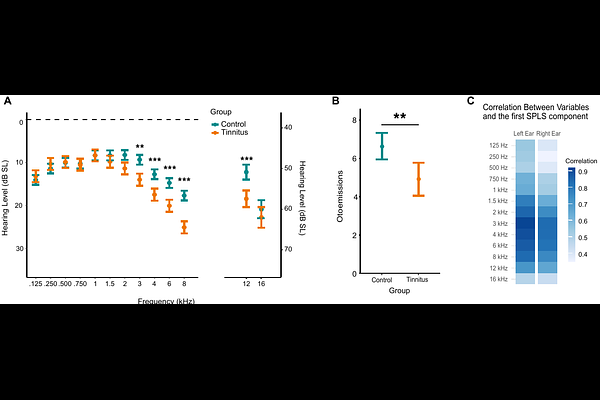Tinnitus perception is linked to arousal system dysfunction

Tinnitus perception is linked to arousal system dysfunction
Hobeika, L.; Masson, R.; Dupont, S.; Londero, A.; Samson, S.
AbstractTinnitus, the perception of sound in the absence of an external source, affects 14% of the population and is often associated with concentration and emotional difficulties. However, the characterization of the associated cognitive difficulties remains unclear. We hypothesize that attentional complaints are due to a dysfunction of the exogenous or endogenous orientation of attention, or of the arousal system. In this study, 200 participants (100 with chronic tinnitus and 100 matched controls) completed a battery of cognitive tasks assessing attention, alertness and executive functions, including the Attentional Network Task (ANT), Sustained Attention to Response Task (SART) with mind wandering evaluations, Stroop, and Trail Making Test. Tinnitus comorbidities, including hearing loss, sleep quality, anxiety, and hyperacusis were controlled. The results showed that individuals with tinnitus had a reduced sensitivity to alert signals, and lower sustained attention abilities, both suggesting lower levels of arousal. Mind-wandering analyses revealed fewer planning-related thoughts in the tinnitus group, suggesting higher needed cognitive resources to perform the task. Contrary to prior findings, we found no evidence of deficits in executive functioning specific to tinnitus; rather, executive impairments were associated with hearing loss and sleep disturbances. Overall, these findings support the hypothesis that tinnitus is linked to a dysfunction in the arousal system, likely involving the locus coeruleus, noradrenergic network. This work proposes a new theoretical framework implicating arousal dysregulation as a core mechanism in tinnitus-related cognitive complaints.